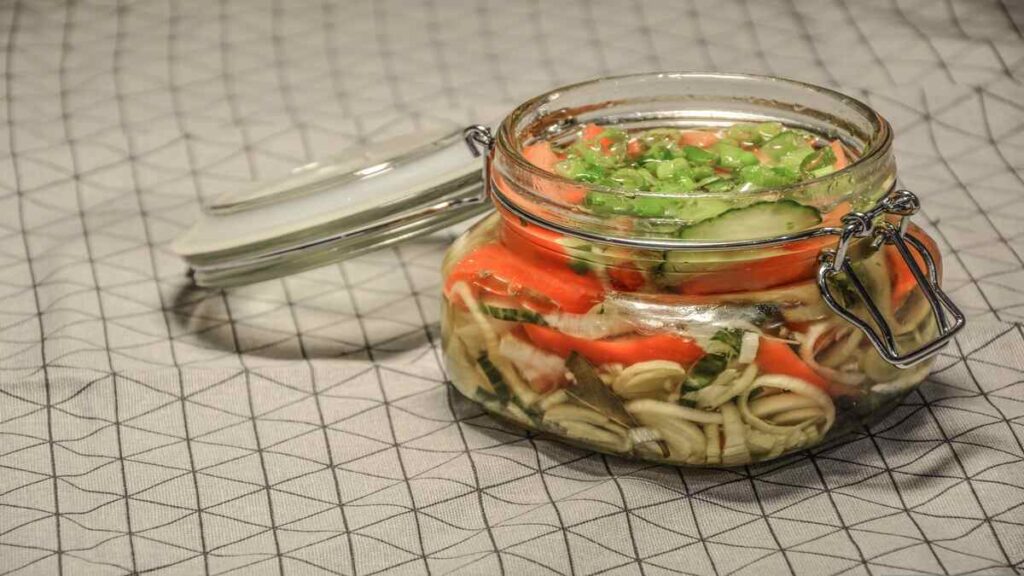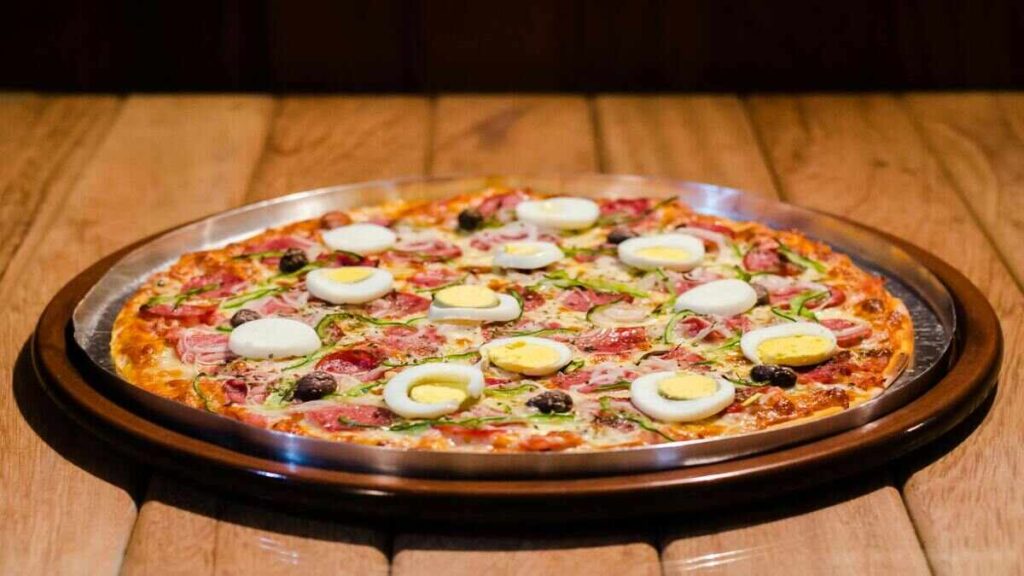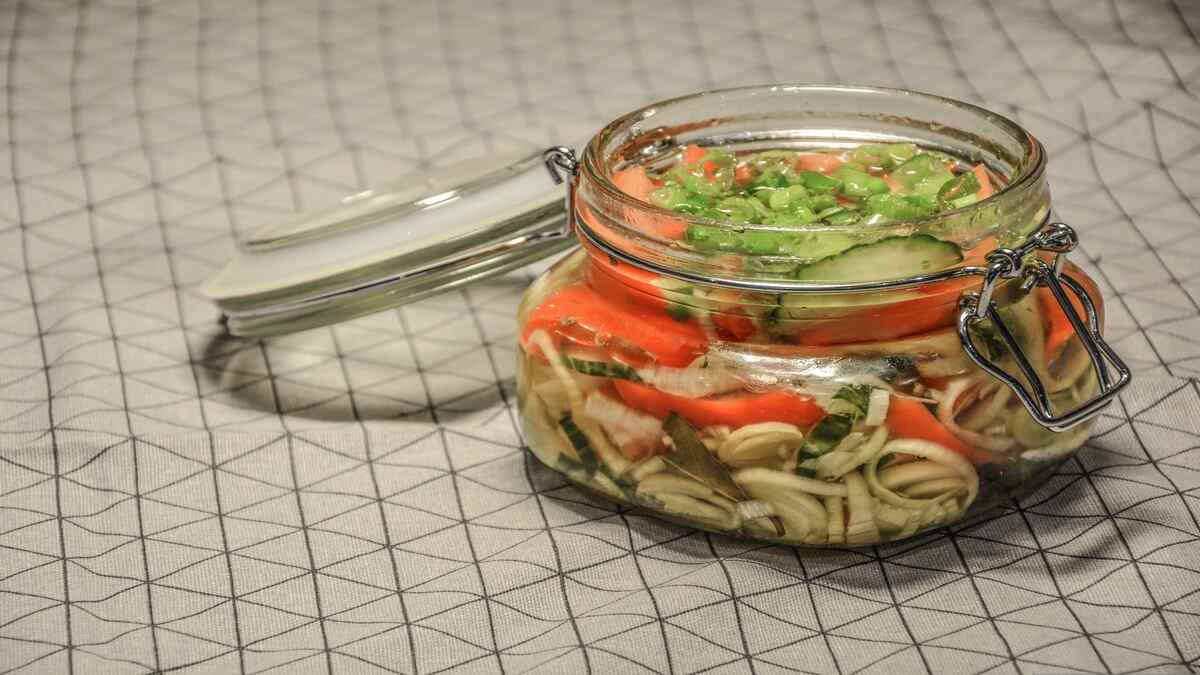Pickled eggs are a classic snack, steeped in tradition and packed with bold flavor. Known for their tangy taste and versatility, Pickled Eggs Recipe are a convenient protein source that can be enjoyed on their own or as part of a dish. From bar snacks to elegant charcuterie boards, these zesty eggs add a punch of flavor to any meal. With just a handful of ingredients and some patience, you can make your own pickled eggs at home, and they’ll be far tastier than store-bought options.
What Are Pickled Eggs Recipe?
Pickled Eggs Recipe are hard-boiled eggs preserved in a tangy vinegar-based brine. The brine, often infused with spices, herbs, and sometimes beet juice for added flavor and color, not only preserves the eggs but also enhances their taste. Pickled eggs are a popular snack in many cultures, offering a long shelf life and a delightful tangy flavor.
The Origin of Pickled Eggs Recipe
The practice of pickling eggs dates back centuries and is believed to have originated as a way to preserve food before refrigeration. Pickled eggs became particularly popular in European taverns and pubs, where they were served as a snack to accompany beer. Over time, this tradition spread to America, where they became a beloved bar snack, especially in the Midwest and Southern states.

Ingredients for Pickled Eggs Recipe
| Ingredient | Quantity |
| Large eggs (hard-boiled) | 12 |
| White vinegar | 2 cups |
| Water | 1 cup |
| Sugar | 2 tbsp |
| Salt | 1 tsp |
| Garlic cloves (smashed) | 2 |
| Black peppercorns | 1 tsp |
| Mustard seeds | 1 tsp |
| Bay leaves | 2 |
| Red chili flakes (optional) | ½ tsp |
| Beet juice (optional, for color) | ½ cup |
Equipment Needed
- Medium saucepan
- Large jar with lid (sterilized)
- Slotted spoon
- Mixing spoon
- Measuring cups and spoons
Step-by-Step Preparation
1. Preparing the Eggs
- Place the eggs in a saucepan and cover them with water. Bring to a boil, then reduce the heat and simmer for 9-12 minutes.
- Once cooked, transfer the eggs to an ice bath to cool completely. Peel the shells and set the eggs aside.
2. Making the Pickling Brine
- In a medium saucepan, combine the white vinegar, water, sugar, salt, garlic cloves, black peppercorns, mustard seeds, bay leaves, and red chili flakes (if using).
- Bring the mixture to a boil, stirring until the sugar and salt dissolve. Let the brine simmer for 2-3 minutes to infuse the flavors.
3. Pickling the Eggs
- If you’re using beet juice for color, add it to the bottom of the jar.
- Place the peeled eggs into the sterilized jar, layering them carefully to avoid breaking.
- Pour the hot pickling brine over the eggs, ensuring they are fully submerged.
- Seal the jar tightly and let it cool to room temperature before transferring it to the refrigerator.
- Allow the eggs to pickle for at least 3-5 days, or up to 2 weeks for stronger flavor. Shake the jar occasionally to distribute the brine evenly.
Health Benefits of Pickled Eggs Recipe
- High in Protein: Pickled eggs are an excellent source of protein, which helps build and repair tissues and keeps you feeling full longer.
- Low in Carbs: This snack is naturally low in carbohydrates, making it ideal for low-carb and keto diets.
- Rich in Vitamins and Minerals: Eggs are packed with essential nutrients like vitamin B12, selenium, and choline, which support brain health and metabolism.
- Probiotic-Friendly: If you use fermented vinegar in your brine, pickled eggs may also support gut health.
- Long Shelf Life: Pickling extends the shelf life of eggs, making them a convenient option for meal prep or quick snacks.
Unique Tips for Perfect Pickled Eggs Recipe
- Choose Fresh Eggs: Use fresh eggs for a better texture, and ensure they are hard-boiled perfectly for easy peeling.
- Experiment with Flavors: Add fresh herbs like dill, spices like turmeric, or sliced onions to customize the flavor of your pickled eggs.
- Be Patient: Allow the eggs to pickle for at least a week for the best flavor. The longer they sit, the more flavorful they become.
- Use Beet Juice: Adding beet juice not only gives the eggs a stunning pink hue but also adds a subtle earthy sweetness.
- Sterilize the Jar: Properly sterilize your jar to ensure the eggs stay fresh and safe to eat for longer periods.
Best Ways to Serve Pickled Eggs Recipe
- On Their Own: Enjoy pickled eggs as a snack with a sprinkle of salt and pepper.
- On Salads: Slice them and add them to green salads or potato salads for a tangy twist.
- With Charcuterie: Include pickled eggs on a charcuterie board alongside cured meats, cheeses, and crackers.
- As a Bar Snack: Serve them with a cold beer for a classic pairing.
- In Sandwiches: Slice pickled eggs thinly and add them to sandwiches or wraps for extra flavor.
Calories and Nutritional Information
| Nutrient | Amount Per Egg |
| Calories | ~70 |
| Protein | ~6g |
| Fat | ~5g |
| Carbohydrates | ~1g |
| Sodium | ~200mg |

Prep Time and Cook Time
| Task | Time Required |
| Prep Time | 10 minutes |
| Cook Time | 15 minutes |
| Pickling Time | 3-7 days |
| Total Time | ~3-7 days |
Conclusion
Pickled Eggs Recipe are more than just a snack—they’re a flavorful, nutrient-dense treat that can elevate any meal. With their tangy brine and long shelf life, they’re a practical addition to your kitchen. Whether you’re making them as a quick protein-packed snack or to impress guests on a charcuterie board, pickled eggs are easy to customize and fun to make. Try this recipe, and you’ll have a jar of delicious, colorful eggs ready to brighten your meals.
FAQs
1. How long do Pickled Eggs Recipe last?
Pickled eggs can last up to 3-4 weeks in the refrigerator if stored properly in a sterilized jar and kept fully submerged in brine.
2. Can I use apple cider vinegar instead of white vinegar?
Yes, apple cider vinegar works well and adds a slightly sweeter, fruitier flavor to the brine.
3. Why do I need to refrigerate pickled eggs?
Refrigeration is essential to prevent bacteria growth and ensure the eggs remain safe to eat.
4. Can I reuse the brine for another batch of eggs?
It’s not recommended, as the brine may lose its potency and could pose a safety risk.
5. Can I pickle quail eggs instead of chicken eggs?
Yes! Quail eggs make adorable mini pickled eggs and are perfect for charcuterie boards or appetizers.
